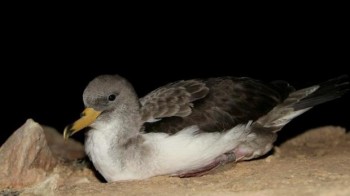Dario Capizzi (Latium Region—Regional Park Agency, Rome, Italy) and colleagues have published in a book on problematic wildlife showing that breeding success of Scopoli’s Calonectris diomedea and Yelkouan Puffinus yelkouan Shearwaters increases after eradication of Black Rats Rattus rattus on Italian islands in the Mediterranean. The latter species has been identified as a potential candidate for listing within the Agreement.
The chapter’s abstract follows
“The black rat (Rattus rattus) is thought to be the most widespread mammal on Mediterranean islands. In recent years, many field studies have documented its detrimental impact on native species, communities and ecosystems. In order to restore island ecosystems by eliminating the impacts of black rat, several projects have been planned and implemented during the last 15 years on Italian islands. Although these projects were specifically aimed at protecting nesting shearwaters Calonectris diomedea and Puffinus yelkouan from rat predation, they were also planned in order to provide benefits to other island ecosystem components, species and communities. Rats were eradicated from small islands (about 1 ha of surface) to very large islands (over 1000 ha, i.e. Montecristo). Monitoring programmes showed that shearwater reproductive success increased after rat eradication. During these years, we obtained data on different aspects related to the problem of rat impact and control on islands: (1) rat impact on target species; (2) benefits for native species from rat removal; (3) field techniques and bait delivery methods; (4) impact of rodenticides on non-target species; (5) rat abundance, home range and movements and (6) rat reinvasion after eradication. Furthermore, we developed a model aimed at identifying priority islands where rat eradication should be carried out, and/or establish recommended actions.”

Scopoli's Shearwater fledgling
Reference:
Capizzi, D., Baccetti, N. & Sposimo, P. 2016. Fifteen years of rat eradication on Italian islands. In: Angelici, F.M. (Ed.). Problematic Wildlife. A Cross-Disciplinary Approach. Berlin: Springer International Publishing. pp 205-227.
John Cooper, ACAP Information Officer, 27 December 2015

 English
English  Français
Français  Español
Español